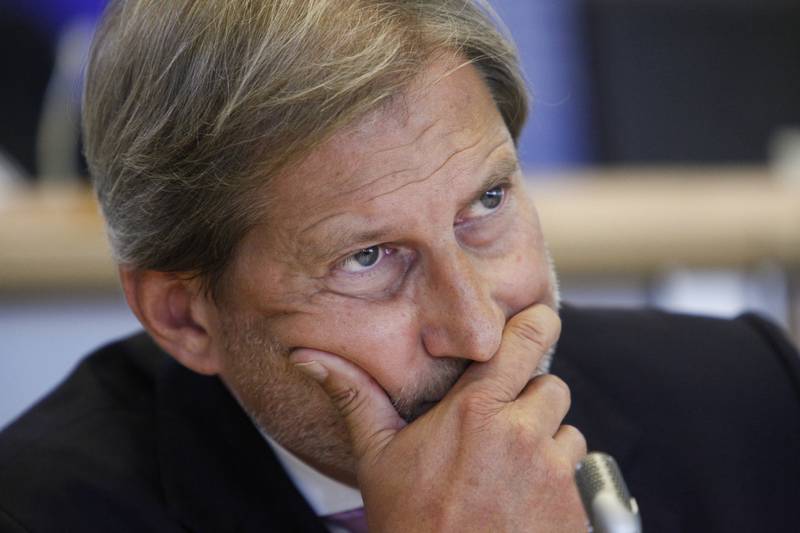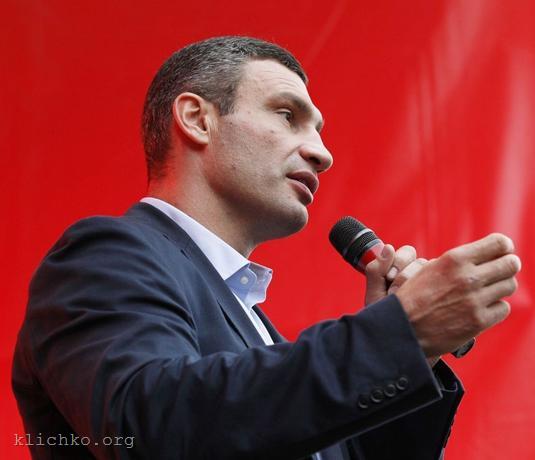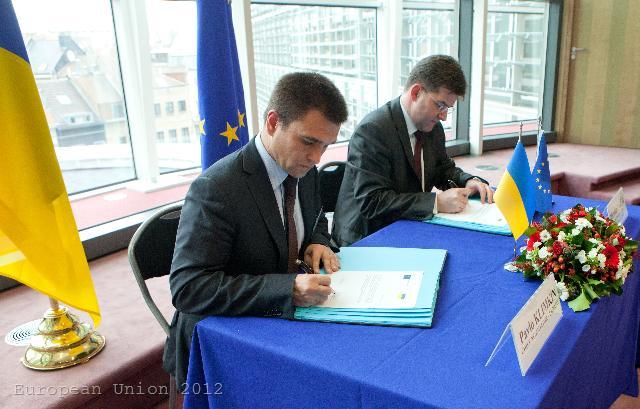EU Has Neglected Its Eastern Partners
Adelina Marini, October 7, 2011
 Controversial and ambiguous were the comments after the end of the summit between the Eastern Partnership (EaP) countries and the European Union which took place in Warsaw in the end of September. Controversial just as there are controversies in the countries themselves,which said "no" to their Soviet communist past 20 years ago but are still uncertain which the right path to go is. Not less controversial was my conversation with Andreas Umland, we held in Facebook, on the outcome of the summit. He is Dr. phil., Ph. D., a DAAD Associate Professor of German and European Studies at the Department of Political Science of the National University of "Kyiv-Mohyla Academy", and General Editor of the book series "Soviet and Post-Soviet Politics and Society". Mr Umland is one of the respected and influential analysts of the situation in Ukraine, especially with regard to the country's European aspirations.
Controversial and ambiguous were the comments after the end of the summit between the Eastern Partnership (EaP) countries and the European Union which took place in Warsaw in the end of September. Controversial just as there are controversies in the countries themselves,which said "no" to their Soviet communist past 20 years ago but are still uncertain which the right path to go is. Not less controversial was my conversation with Andreas Umland, we held in Facebook, on the outcome of the summit. He is Dr. phil., Ph. D., a DAAD Associate Professor of German and European Studies at the Department of Political Science of the National University of "Kyiv-Mohyla Academy", and General Editor of the book series "Soviet and Post-Soviet Politics and Society". Mr Umland is one of the respected and influential analysts of the situation in Ukraine, especially with regard to the country's European aspirations.
Before I offer you our full conversation I will just recall that the summit ended with a Warsaw Declaration in which not even one concrete commitment was made toward not even one of the six countries in the Eastern Partnership. And there were expectations for such commitments, especially on behalf of Ukraine, Georgia and Moldova. The first because it hoped at the EU-Ukraine summit the negotiations on the Association Agreement, part of which is the first of its kind Deep and Comprehensive Free Trade Agreement (DCFTA), to be finalised. Kyiv hoped that it would not be impossible the agreement to be signed in December. And Georgia and Moldova expected a specific date for the start of negotiations on such agreements with them.
Moreover, in the end of the summit the host (Polish PM Donald Tusk) apologised to the three countries (considered to be excellent performers in the Eastern Partnership) that it was impossible for them to receive a clear European perspective. Everything in the declaration was in the conditional mood with a clear message: "It all depends on you". Most comments noted that the summit was in fact a failure but my personal opinion is that the very fact that it was attended by most heads of state or government of the EU countries, as well as by all the presidents and prime ministers of the six Eastern Partnership countries, excluding Belarus, speaks a lot about the significance being rendered to the eastern partners.
But how do things look like from Ukraine?
euinside: Let's start first with your general assessment of the outcome of the summit?
Andreas Umland: The inadequate outcome of the summit is a result of the relative inattention for the Eastern Partnership from the EU and its member states, during the last two years. Oddly, the situation in the region has overall gotten worse rather than improved which has been reflected in the inadequate summit outcome.
euinside: You think that the EU has neglected its eastern neighbours, is that so?
Andreas Umland: Yes, especially such countries as Germany, France or Italy* have spent too much time on courting Russia, and given insufficient attention to developments in the Eastern Partnership countries. After Putin's announcement of the Eurasian Union project, it will be interesting to see how the pro-Russian European powers will react to that.
euinside: Do you think that, while you maybe right that some big EU countries are courting Russia, in the same time the situation in some of the Eastern Partnership countries seems, at this stage, impossible to impact from the outside? And what do you think the EU should have done for these two years?
Andreas Umland: In fact, the EU has potentially a large influence on, for instance, Ukraine, but has largely waisted the moments when it should have become active. For instance, in spring 2010, a delegation of the European Parliament headed by Adrian Severin [a former foreign minister of Romania and a member of the European Parliament, whose immunity was waived because of a bribe scandal] explicitly approved the formation of the current Azarov Government [Mykola Azarov, a leader of the Party of the Regions, whose leader before him was Viktor Yanukovich] with turncoats from the Orange Factions. Oddly, the European Parliament has thus approved a de facto, ex post falsification of the 2007 Ukrainian parliamentary elections. These elections had been proportional, conducted with closed lists, and won by the Orange camp. But, for some reason, we have today a Blue government in power ....**
euinside: Since Poland is at the helm of the EU is there an increase of activities on behalf of the EU toward Ukraine, more specifically?
Andreas Umland: That is still difficult to say. I have not noticed a marked increase yet, though that might be a subjective impression, and a higher interest is certainly there.
euinside: It was interesting that the Polish PM acknowledged that this summit was unable to meet the expectations specifically of Ukraine, Moldova and Georgia to receive a clear European perspective. Is there a sense of disappointment in Ukraine and is this really what the country wants?
Andreas Umland: The Ukraine's government striving for an explicit EU membership perspective is in principal right, and the EU's rejection to provide such a promise is short-sighted. However, it has been already clear for a while that the EU does not want to include a membership perspective in the Association agreement. Thus, Kyiv's continuing talk about it looks more like a diversion, or possible excuse to be less forthcoming with regard to Brussels' various wishes concerning the state of democracy and rule of law in Ukraine.
euinside: How would you comment on the statements that the negotiations on the DCFTA with Ukraine are directly related to the trial against Yulia Tymoshenko?
Andreas Umland: There is obviously no direct link between them, but both the signing and ratification of the Association Agreement, including the DCFTA, will depend on the democratic credentials of Ukraine, and on the future role of the Ukrainian opposition. If the main opposition leader is excluded from the political process, this will be seen as a sign that Ukraine is not yet ready for an Association with the EU.
euinside: And in the end, do you think the Eastern Partnership is a useful foundation for good neighbourly relations between the EU and these countries?
Andreas Umland: Yes, the Eastern Partnership is in principal a good idea and identifies the right circle of countries, for more intensive interaction. Especially concerning Belarus and Azerbaijan, there is however also the question of how far the EU should cooperate with the governments of these states. But even regarding these two countries, there is in the mid-term a good chance that they develop into full members of the European family.
euinside: Therefore, how do you find the words of PM Orban who was quite openly talking about the need the EU to enlarge to the east? He himself defined his statement as pretty bold but nonetheless necessary?
Andreas Umland: At the moment, the talk about Eastern enlargement is useless. None of the EaP countries fulfils the Copenhagen Criteria. Moldova is extremely poor, Georgia a failed state, and Ukraine a political mess. The other countries are simply authoritarian. Lots of things would have to change in the whole region before it makes sense to talk about enlargement.
*Of these three biggest and influential countries in the EU only Germany respected the summit in Warsaw at a high level - through Chancellor Angela Merkel. France was represented by its Premier François Fillon, instead of President Nicolas Sarkozy, while Italy send just a State Secretary for Foreign Affairs, not even the minister of foreign affairs.
**Orange is the colour of the pro-democratic forces in Ukraine, for which the revolution of 2004 was called "orange". With blue are coloured the pro-Russian forces of the Party of the Regions in Ukraine.
 Johannes Hahn | © European Parliament
Johannes Hahn | © European Parliament | © klichko.org
| © klichko.org | © European Union 2012
| © European Union 2012